Anastassia is a PhD linguist and mom of a trilingual 4-year old daughter. She is from Russia. Her husband, Holger, is from Germany. They met in Oxford, UK and are now living in the United States, balancing English, Russian, and German in their daily lives. The goal: to naturally integrate the languages into their daughter’s life. A particular quirk of this interview: many resources for German and Russian.
Parents: Mom=Russian, English, German; Dad=German, English
Children: Daughter = English, Russian, German
Veronika: Who belongs to your family? What languages do you speak at home or to each other?
 Anastasia: I grew up in Russia. I lived in Saint Petersburg until I was in my early twenties. Then, I moved to England for my Ph.D. and lived in Oxford for ten years, and then my husband Holger and I came here to the US. That last move was about 10 years ago. So, I grew up, speaking Russian, but I have been speaking English to most of my friends for the past 20 years—basically since I started graduate school. Holger, my husband was born in central Germany. He moved to Oxford around the same time I did in his early twenties for his Ph.D. in Physics. My husband’s native language is German, and like most Germans he learned English in school. We speak to each other in English because this is how we met, but I also speak German. I learned German at school. Our daughter, Tonja, is four years old. She was born here in America. She is American but since birth, I have been speaking to her in Russian and Holger has been speaking to her in German. And she has been going to day-care since she was three months old. So she has plenty of exposure to English.
Anastasia: I grew up in Russia. I lived in Saint Petersburg until I was in my early twenties. Then, I moved to England for my Ph.D. and lived in Oxford for ten years, and then my husband Holger and I came here to the US. That last move was about 10 years ago. So, I grew up, speaking Russian, but I have been speaking English to most of my friends for the past 20 years—basically since I started graduate school. Holger, my husband was born in central Germany. He moved to Oxford around the same time I did in his early twenties for his Ph.D. in Physics. My husband’s native language is German, and like most Germans he learned English in school. We speak to each other in English because this is how we met, but I also speak German. I learned German at school. Our daughter, Tonja, is four years old. She was born here in America. She is American but since birth, I have been speaking to her in Russian and Holger has been speaking to her in German. And she has been going to day-care since she was three months old. So she has plenty of exposure to English.
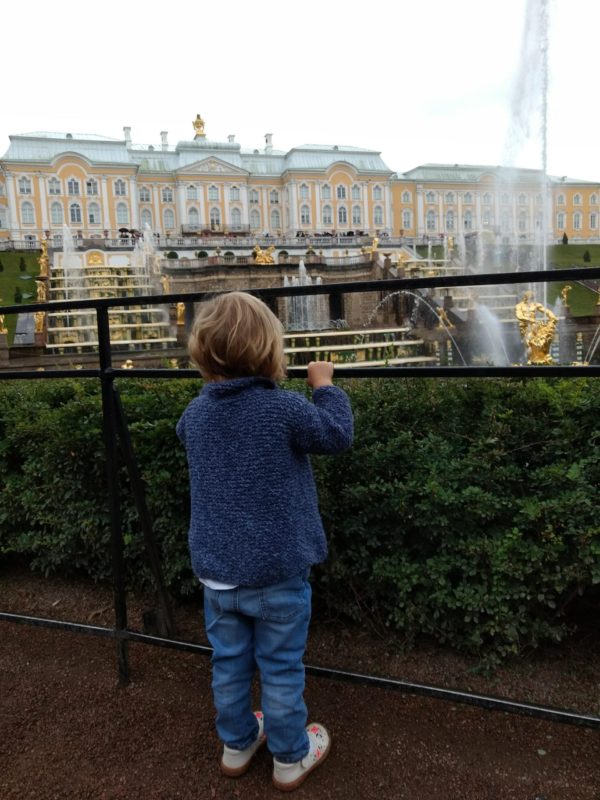 Veronika: That is very similar to our situation. Ella started day-care, too, at three months of age. But then we only have English and German, not three languages at home. How does that work when you are all together?
Veronika: That is very similar to our situation. Ella started day-care, too, at three months of age. But then we only have English and German, not three languages at home. How does that work when you are all together?
Anastassia: Well, I speak Russian with her and Holger speaks German with her. Holger has gotten better at understanding Russian but he doesn’t really speak it. So, when we are all together, we speak English or sometimes German.
What to do when the partner doesn’t understand your language
Veronika: Is Holger able to follow roughly what you are saying in Russian?
Anastasia: He can follow some of it but if it is a conversation that we want all of us to be involved in, then I repeat things in another language or we switch to either English or German. You know, at dinner, we just mix languages. When we sit down at dinner and I ask “How was kindergarten today?”, I might ask her in German, for example, and she will start answering in English or Russian. If she answers in Russian, I usually translate it into English for Holger and we will just keep alternating.
Veronika: That’s very similar to what I do when we have dinner. My husband doesn’t speak German and understands very little German. So I’m consistently speaking in German to Ella and repeat what I say in English to make sure we are all on the same page. It takes a bit of a conscious effort, but that’s how I try to make it work.
 Anastassia: Holger and I both do this a lot to reinforce Russian or German. For example, in a situation in which she needs to count, we never tell her to say it in a specific language. But we both repeat what she said in our languages, in Russian or German.
Anastassia: Holger and I both do this a lot to reinforce Russian or German. For example, in a situation in which she needs to count, we never tell her to say it in a specific language. But we both repeat what she said in our languages, in Russian or German.
Veronika: That’s a great approach: not to put pressure but to naturally include the other languages. What else do you do to promote the minority languages?
Skyping with family in Russia
 Anastassia: I am going to speak about what I do because I can’t speak on Holger’s behalf. What worked really well is direct contact with my family in Russia. We skype with them every weekend for an hour. When she was a toddler, Tonja would usually speak with them while we were eating because that is the easiest way to keep kids sitting. But now she actually enjoys it. So she skypes with my parents. They always interact with her. For instance, they may perform a puppet show. They basically have fun and joke with her. That’s how they keep her engaged. But the key thing: she has the family that only speaks Russian so she needs to know Russian in order to speak to them.
Anastassia: I am going to speak about what I do because I can’t speak on Holger’s behalf. What worked really well is direct contact with my family in Russia. We skype with them every weekend for an hour. When she was a toddler, Tonja would usually speak with them while we were eating because that is the easiest way to keep kids sitting. But now she actually enjoys it. So she skypes with my parents. They always interact with her. For instance, they may perform a puppet show. They basically have fun and joke with her. That’s how they keep her engaged. But the key thing: she has the family that only speaks Russian so she needs to know Russian in order to speak to them.
Veronika: That’s important—the need to use the language.
Reading books in both minority languages
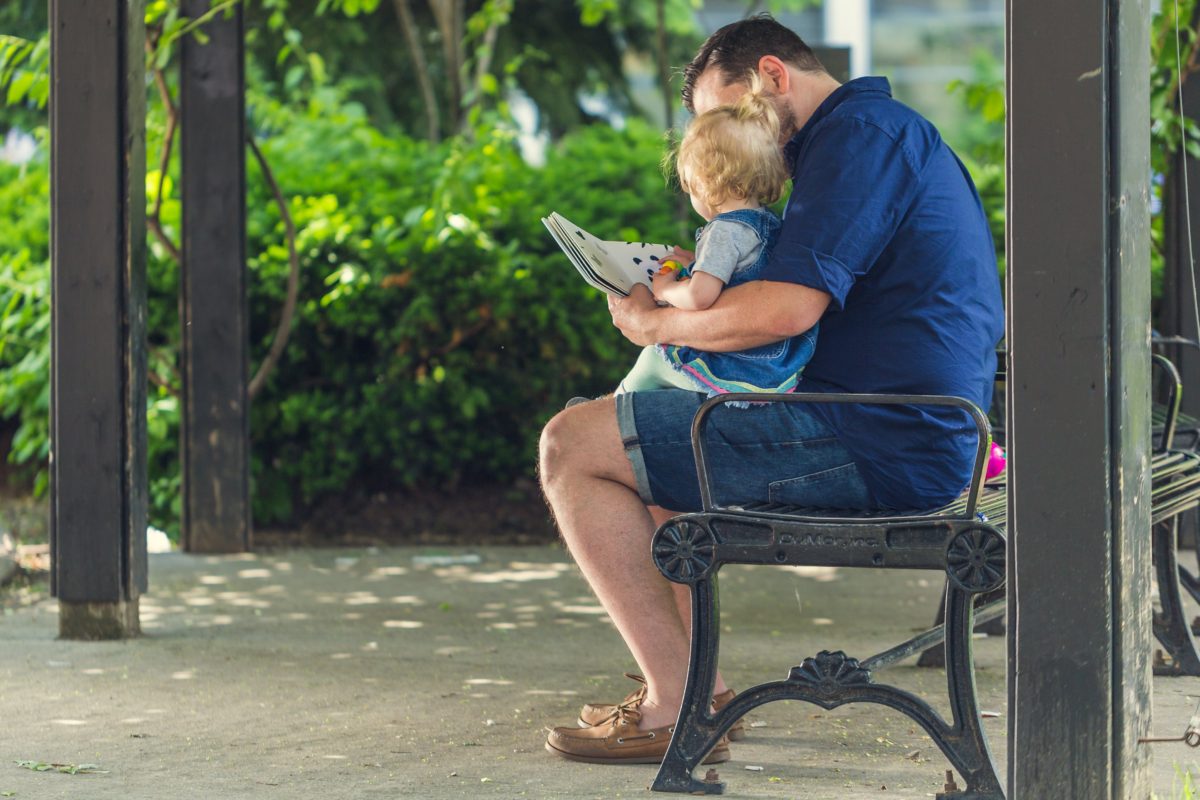 Anastassia: We also read to her. We have been reading to her from a very, very young age. I always read to her in Russian. So, even English books I translated them on the fly. Reading books in Russian is more natural to me. I don’t know many English books for babies and toddlers. I didn’t grow up with them. I do know the Russian books though. And I love these books. I think you can tell by your voice when you read something whether you yourself love it. So, I have always read to her the books that I grew up with in Russian. Every evening we do a one-hour reading session. I usually read two or three books in Russian and then Holger would come and read some books in German. She is very persistent that we read books in Russian. Sometimes I tried to sneak in a book in English, but she would say “No, no no! In Russian.”
Anastassia: We also read to her. We have been reading to her from a very, very young age. I always read to her in Russian. So, even English books I translated them on the fly. Reading books in Russian is more natural to me. I don’t know many English books for babies and toddlers. I didn’t grow up with them. I do know the Russian books though. And I love these books. I think you can tell by your voice when you read something whether you yourself love it. So, I have always read to her the books that I grew up with in Russian. Every evening we do a one-hour reading session. I usually read two or three books in Russian and then Holger would come and read some books in German. She is very persistent that we read books in Russian. Sometimes I tried to sneak in a book in English, but she would say “No, no no! In Russian.”
Veronika: Haha, we have the same issue. With the books for our 3-year old, I sometimes tried to read English books in German, translating them on the fly as I was reading. But she knows that the book is either in German or in English, and it has to be in the original language.
Anastassia: Yeah?
Veronika: No translation allowed. She would always tell me… “Mama, das ist in Englisch!” So books in German have to be read in German. Books in English need to be read in English.
A different personality in different languages
Anastassia: I don’t know if you noticed that yourself, but I find that I change my personality depending on what language I speak.
Veronika: How so?
Anastassia: I use different expressions, my tone of voice changes. I speak lower or higher. I think Tonja also likes my Russian personality.
Veronika: Ah, I see what you mean. Yes, I can see that. Do you notice that your daughter has a different personality when she speaks the different languages?
Anastassia: Uhm, I haven’t noticed that as much yet. Her Russian is very sophisticated because most of it she hears from me. So, it is very complex, she uses expressions kids usually do not use. Her English on the other hand is mostly “playground-English”. Sometimes I think, I should speak more English with her, to provide her with more sophisticated and “adult-like” English input. Her English sounds very colloquial.
One language tends to be dominant or stronger
Veronika: Do you feel she has a strongest language amongst the three?
Anastassia: English is definitely her strongest language. In English she speaks without an accent like a native speaker. In Russian she is very, very fluent and understands me well, but she makes mistakes different from those a monolingual Russian-speaking child would make. Right now, her languages in terms of strength are English, Russian, and German. But the order might switch when we next go to Germany.
 Veronika: Yeah, we had that switch happen in May this year. I took Ella to Germany for three weeks. Before that trip, she would regularly respond to me in English. Then over the course of three weeks in Germany, she became so immersed in German that towards the end of our stay, she had a hard time finding words in English when we were speaking to my husband via Skype. But I think it was not just her being immersed in German. A large part of it was that people were amazed that she actually spoke German so she received a lot of praise for her German which boosted her little ego. At the end, just three weeks in Germany completely changed her language use. When we came back to the U.S., it took her a couple of days to plunge back into English. But ever since, she has been leveled out, using both languages equally. So she speaks German to me all the time and English with my husband. I don’t even have to prompt her anymore. So that trip was worth every penny! 😉
Veronika: Yeah, we had that switch happen in May this year. I took Ella to Germany for three weeks. Before that trip, she would regularly respond to me in English. Then over the course of three weeks in Germany, she became so immersed in German that towards the end of our stay, she had a hard time finding words in English when we were speaking to my husband via Skype. But I think it was not just her being immersed in German. A large part of it was that people were amazed that she actually spoke German so she received a lot of praise for her German which boosted her little ego. At the end, just three weeks in Germany completely changed her language use. When we came back to the U.S., it took her a couple of days to plunge back into English. But ever since, she has been leveled out, using both languages equally. So she speaks German to me all the time and English with my husband. I don’t even have to prompt her anymore. So that trip was worth every penny! 😉
Anastassia: Yeah, when we were in Russia, Tonja spoke Russian and only very few words in German to my husband. She always spoke to him in English. Then we came back here, and she switched back to German. Who knows why….
Veronika: Interesting! I think that for bilingual children languages can be strongly tied to people and places. Your husband probably spoke English to your family, right?
Anastassia: Yeah, that could be the case. Yeah!
Veronika: Have you encountered any challenges in keeping up the minority languages—Russian and German—on a regular basis?
Challenge: Keeping languages balanced as children go to school
Anastassia: I think it is going to be more and more difficult as Tonja goes to school. So far, it has been relatively easy. But I know the more she goes to school, the more she will be exposed to information in English and her Russian and German will be at the level of a younger child if you don’t proactively work on the minority languages. I know some people sit with their child at home and do the whole curriculum in the other language. But that is a major investment. I don’t know if I will have time or even want to make her go through that. So this is a concern I have.
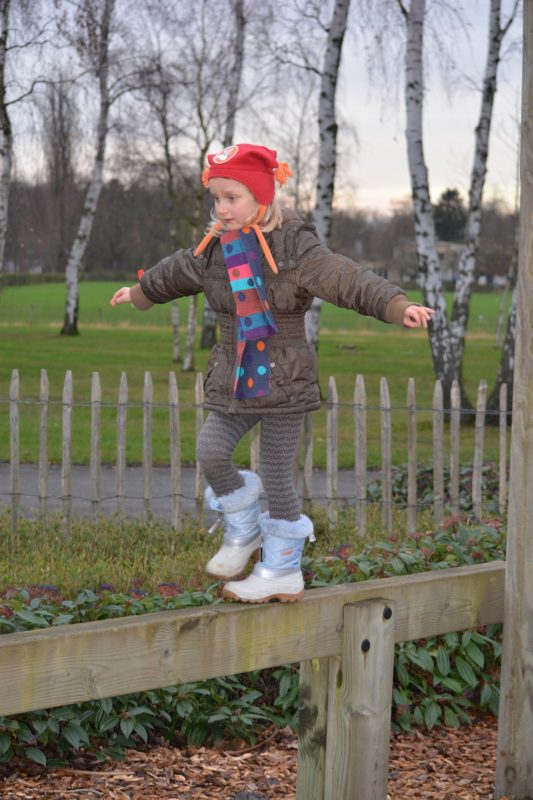 I know that myself, for example. There are topics or subjects I can talk about in Russian that I could not speak about in English. I know musical theory but I learned it in Russian and never had to use these words in English. Now when the opportunity comes up, I find myself unable to explain myself. And then when I go back to Russia I cannot speak about my current job because I don’t know the right terms. I think that it will be the challenge for her, too, as she grows up. Expanding her knowledge, keeping the vocabulary up in all three language is going to be hard. And I don’t know yet how we will address that.
I know that myself, for example. There are topics or subjects I can talk about in Russian that I could not speak about in English. I know musical theory but I learned it in Russian and never had to use these words in English. Now when the opportunity comes up, I find myself unable to explain myself. And then when I go back to Russia I cannot speak about my current job because I don’t know the right terms. I think that it will be the challenge for her, too, as she grows up. Expanding her knowledge, keeping the vocabulary up in all three language is going to be hard. And I don’t know yet how we will address that.
Veronika: That’s a good point. I think bilinguals are always stronger or more comfortable in one language versus the other. Or they prefer one language in certain situations or topics. I have the same issue: I need to focus a lot to talk about language testing in German when I do that on a daily basis in English. So your daughter will probably be more comfortable using German in certain situations and Russian in others.
Anastassia: What do you think is going to be your biggest challenge?
Challenge: Keeping up the motivation to learn the minority language
Veronika: The biggest challenge I think will be to keep up the motivation and maybe also to help Ella become biliterate. I think that may eventually become a challenge. We attend a German language school on Saturday mornings here in New Jersey. My struggle right now is that Ella is outgrowing the Musikgarten class which is a mommy-and-me-singing class. She would need to attend the pre-school class eventually …
Anastassia: How old is Ella?
Veronika: She just turned 3.
Anastassia: Ah, okay. So she is one year younger.
Language school on Saturdays
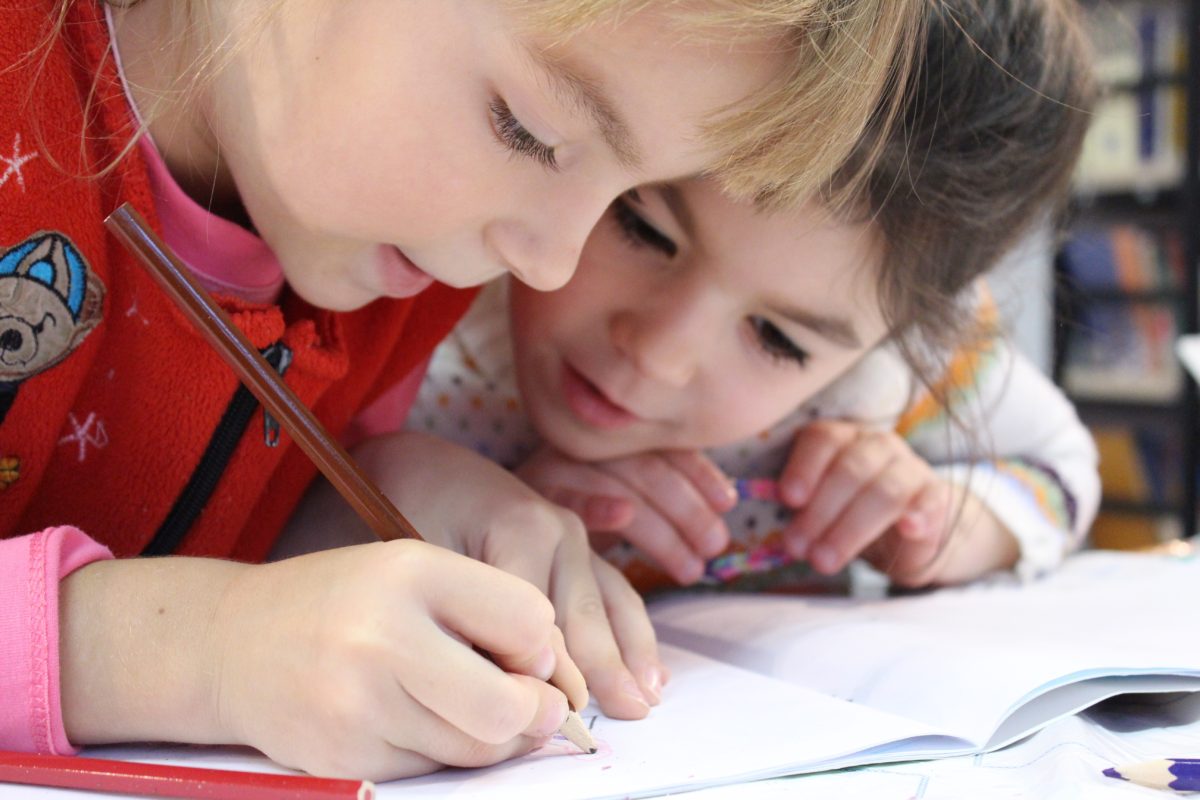 Veronika: Since Ella is going to day-care throughout the week, I’m currently struggling if I want her to go to another class for 3 hours on Saturday mornings instead of just having her spend time with us. At the same time, I know she needs to make friends who are also German-speaking in order to keep up the language in the long run. So that’s my main challenge right now: keep her in the Musikgarten, a class that we attend together for 45 minutes, or do I have her attend pre-school, the 3-hour drop-off class which is more her level now? Eventually, we will see if she makes friends and if the motivation lasts. Hopefully she will and that will carry her through all the way into her teens when she can take the German Language diploma, a requirement for entry to the German university system.
Veronika: Since Ella is going to day-care throughout the week, I’m currently struggling if I want her to go to another class for 3 hours on Saturday mornings instead of just having her spend time with us. At the same time, I know she needs to make friends who are also German-speaking in order to keep up the language in the long run. So that’s my main challenge right now: keep her in the Musikgarten, a class that we attend together for 45 minutes, or do I have her attend pre-school, the 3-hour drop-off class which is more her level now? Eventually, we will see if she makes friends and if the motivation lasts. Hopefully she will and that will carry her through all the way into her teens when she can take the German Language diploma, a requirement for entry to the German university system.
Anastassia: Oh, nice.
Veronika: Yeah, they offer these opportunities. So, ideally she goes through with German classes. We’ll see if the motivation lasts or if other things like sports or other hobbies eventually interfere.
Anastassia: Tonja goes to Russian school here in Long Island.
Veronika: Oh is there one on Long Island?
Anastassia: Yes. We have Russian school once a week. She has been going last year and she is continuing this year. Russian School is really “very very Russian”. It’s more of an immersion program. Everybody there speaks Russian which is why I like to go there.
Veronika: Yeah, that’s a good point. The German school in Morristown has a heritage learner track for kids like Ella who have a German parent and speak German at home and a foreign language track where kids learn German as an additional language.
Using activity books for pre-schoolers
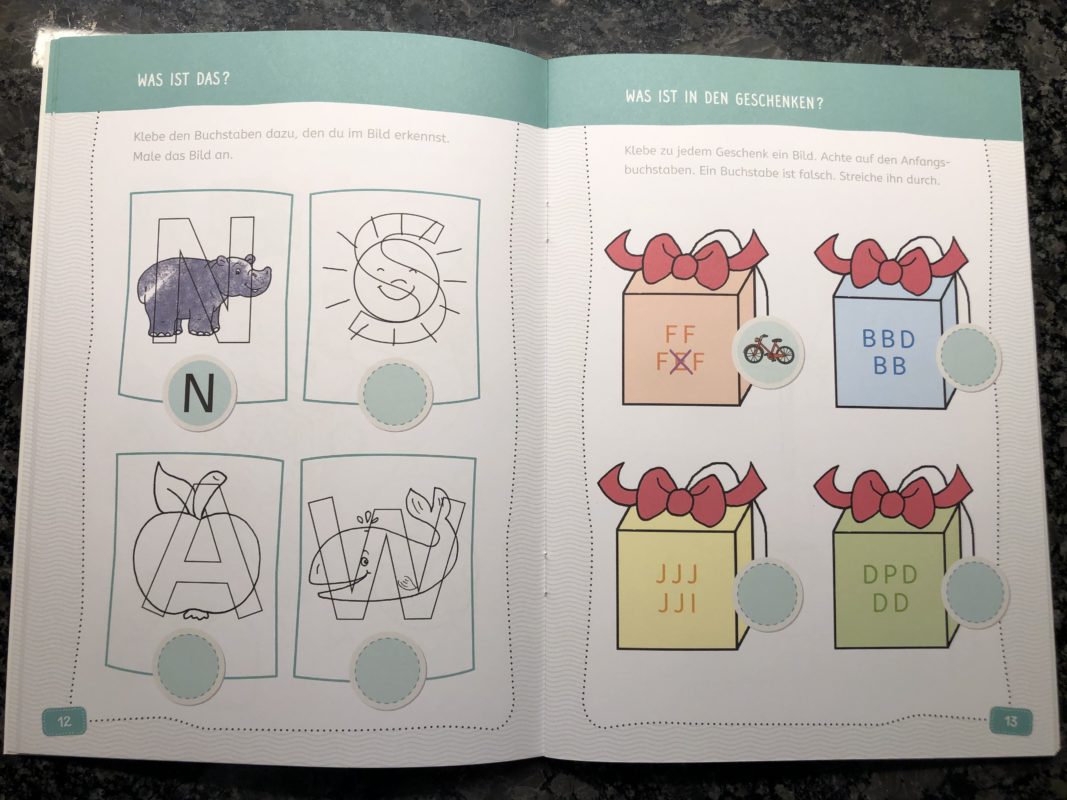
Anastassia: Speaking of reading and writing…we do use some activity books that we import from Germany and from Russia. Your daughter might be slightly too young, but next year she will get there. Some of them use stickers that you need to put next to words and so on. So it’s a very playful approach. We actually find that Russian and German are both much easier to teach in terms of reading than English because in both of them, the orthography is transparent. For example, in German you basically say letter by letter and in many cases you’ll be able to put the word together. That’s systematic and relatively easy for a child. Unlike English where you have cup and cute. Both spelled with <u> but pronounced with [a] and [ju]. In Russian you have [m- a] and [m-a] and that’s Mama.
Veronika: Yes. For German you also have this ‘phoneme-grapheme correspondence’ so you basically know how it’s pronounced based on how it’s spelled.
Anastassia: Exactly. Orthography transparency. English is totally different. Even in English ABC books you find C [s-i:] for “cat” and K for “knife”. How do you teach that?
Veronika: Yes, I noticed that too with some preschool materials. Which activity books have you been using?
Anastassia: For general activities I buy English ones on Amazon – I can send you some links later. For Russian and German, I usually focus on the ones that focus on language. Here, let me show you.
Veronika: Sure.
Anastassia: Here, for example, this is an activity in Buchstaben-Sticker-Rätsel this is letter F and that you have to connect the letter with the word that starts with an F or they make you put a sticker next to the word. These books also come with stickers so it really keeps them engaged. Oh and we have a similar book in Russian. It’s Букварь с наклейками.
Veronika: That’s cool.
Anastassia: It’s cool! It helps you learn the roots of the words and you learn the letters. Plus, preschool kids are very much into stickers.
Veronika: I hear you! How do you use the books at home? Do you have dedicated times or just enjoy them as you go?
Anastassia: Tonja often gets them out either in the morning or in the evening, and does a couple of pages here and there. And it’s fun. You color, you put stickers on, it’s a fun way of learning and engaging with the language.
Veronika: Yeah, that’s true. Can you get these activity books here in the U.S. or do you bring them from Germany and Russia?
Spending hours in book stores in your home country
 Anastassia: The Russian books I have to bring from Russia. German books I just order on Amazon. Whenever I go to Germany or Russia, I spend hours in bookshops just looking for the right books.
Anastassia: The Russian books I have to bring from Russia. German books I just order on Amazon. Whenever I go to Germany or Russia, I spend hours in bookshops just looking for the right books.
Veronika: Me too! My favorite stores aside from Drogerie Markt (DM) are bookstores. <both laugh>.
Anastassia: We have some lovely German books like Die Kleine Hexe, Der kleine Drache Kokosnuss, or books by Julia Donaldson in translation that we read at the moment. Which ones do you read with Ella?
Veronika: She likes Bobo Siebenschläfer, Pettersson books, Na, warte sagte Schwarte, and Meine Freundin Conni books. Oh and check out Kinderbooks in NYC. It’s like a Netflix for German children’s books.
Anastassia: I’ll definitely look into those as well.
Veronika: Okay, one last question: What advice would you give parents who are either already raising their children bilingually or are thinking about it?
Bilingual parenting is about motivation
 Anastassia: I think I would tell them that it is about motivation. Children don’t just learn the language because you want them to be multilingual. I think you want to give your kid a good reason to actually speak the language and learn it. Whether it is the family or the access to the culture that otherwise they would not be able to access. So for us, this need to speak the minority language has been created by books that don’t exist in English, through cartoons that don’t exist in English, and through grandparents who don’t speak the language. And I think it was a pretty big deal that I myself love those cartoons and I myself love those books. So for me the motivation was not so much to have Tonja speak Russian but to be able to share those books and cartoons. She picked up on that very, very well. It’s the example we give. If I just try to teach her in a formal way, like language practice. No, she is never going to learn.
Anastassia: I think I would tell them that it is about motivation. Children don’t just learn the language because you want them to be multilingual. I think you want to give your kid a good reason to actually speak the language and learn it. Whether it is the family or the access to the culture that otherwise they would not be able to access. So for us, this need to speak the minority language has been created by books that don’t exist in English, through cartoons that don’t exist in English, and through grandparents who don’t speak the language. And I think it was a pretty big deal that I myself love those cartoons and I myself love those books. So for me the motivation was not so much to have Tonja speak Russian but to be able to share those books and cartoons. She picked up on that very, very well. It’s the example we give. If I just try to teach her in a formal way, like language practice. No, she is never going to learn.
Veronika: Yeah, I think there has to be some sort of motivation, a use case for them to use the language. They need to really feel that the language is being lived, that it is part of life.
Anastassia: I myself really love those books and I wanted to read them as well. I think that was a big motivator and push for her.
Veronika: Yes, it helps to form a relationship with the languages. Do not just use the language but tie it into something substantial.
Anastassia: Exactly, make it about content.
Veronika: Well, thank you so much for sharing your story and for all these great tips and resources!
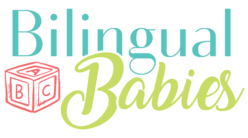


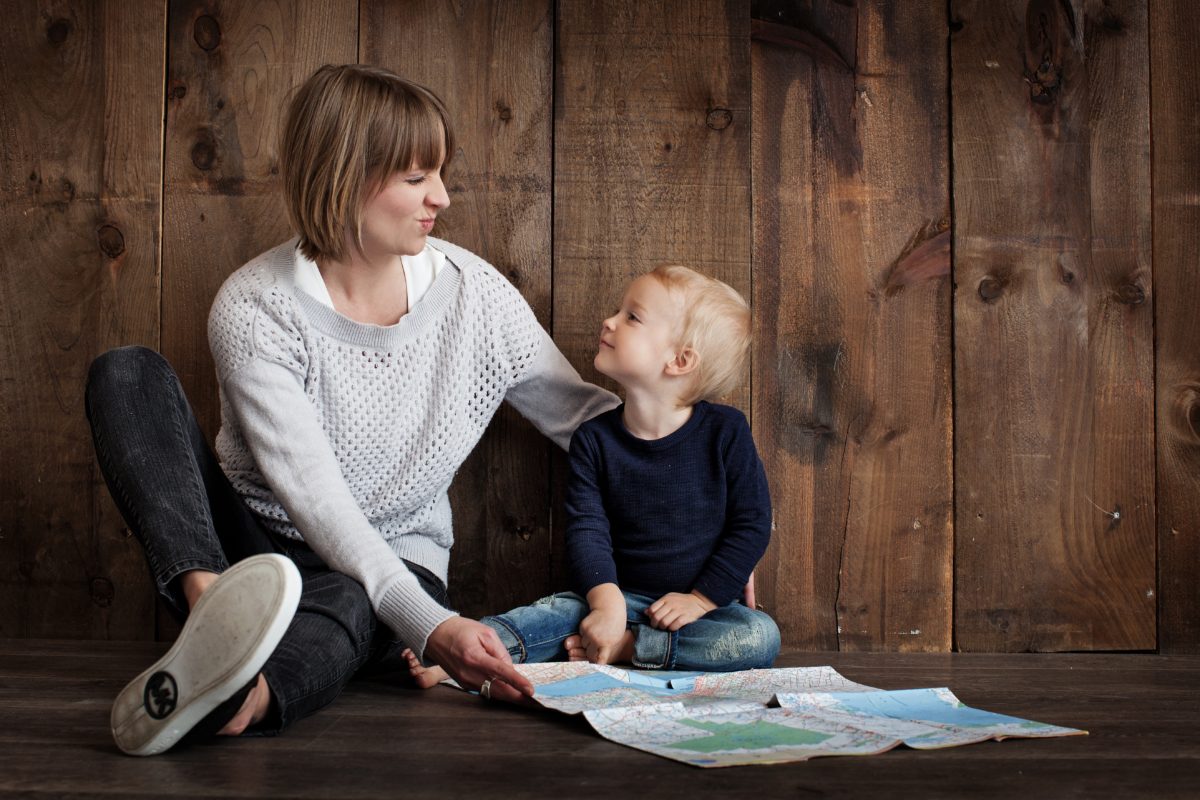
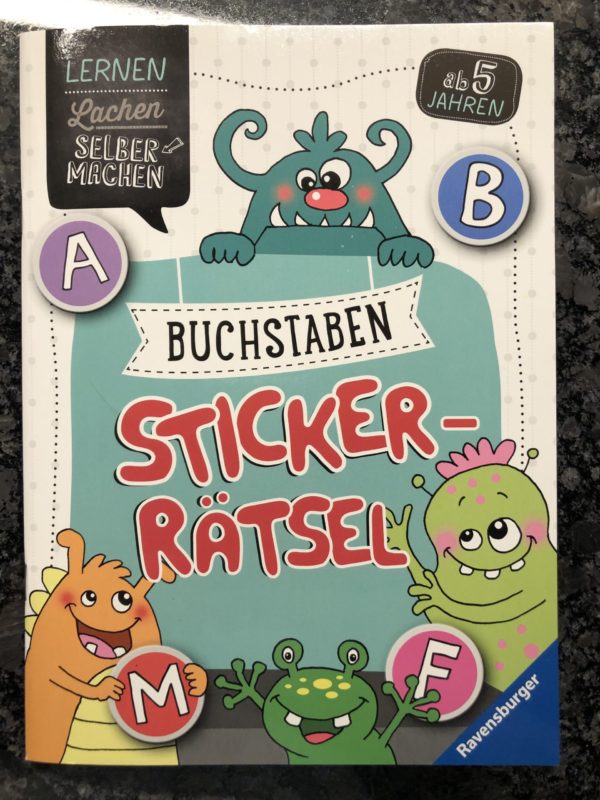
4 comments
Hi Veronica…..I think I’ve asked this before, but received no reply. Is Anastassia residing in Portland, Oregon? I met a young couple with a four year old while I was there a while ago. She was Russian and he was German. Coincidence? Hope you are enjoying the Holidays with family and friends. Best to your parents.
Hey Lee,
Sorry, I must have missed the first note. That must have been a coincidence. The Anastassia I interviewed (see pic in post) lives on the East Coast. But maybe they travelled…? Have a blessed holiday season!!
My husband and I are both enthusiastic non-native speakers of German and have now been speaking German at home (in the US) since our son was born 13 months ago. I am delighted to have just found your blog and as he has just started using some protowords and baby sign language we are getting excited and nervous about what is to come–his first 5-8 “words” have been either ASL, cognates in German and English (baby, “meh” for “mehr”, mama, and “ba” for banana), but just this week he started saying “no” and “bye” in English. He is in day care three days a week, so I am already getting nervous about English taking over, but your comment about your three week trip to Germany gives me a lot of hope! Thanks for the encouragement!
Many thanks for your kind words!! Please feel free to reach out any time. As a German-speaking mom in the US, I’m in a somewhat similar boat. 🙂 By the way, this month is dedicated to raising children as a non-native speaker. So there will be more posts coming that focus on that specific situation. Best of luck!!